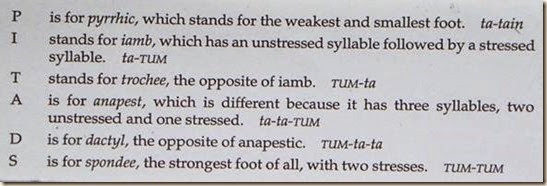ENGLISH – HOURS 1, 3, 4 – Day 29
Collect homework: 7 characters from Act 1 – love and marriage
WARMUP: Using your Literary Terms handout, answer the following:
- What is the difference between a soliloquy and a monologue?
- Write a sentence that contains an allusion to Santa Claus.
- Create an epithet for the celebrity of your choice.
- Name the oxymoron for each of the following words: apart, blame, rare, vertical, loose, plural
- What literary term means emotional relief?
- What’s the definition of a couplet?
- How do you suppose “blank verse” got its definition?
Watched video on dreaming… http://www.youtube.com/watch?v=7GGzc3x9WJU&feature=player_embedded#!
Answer the following 4 questions…write about why some people think each of the following kinds of dreams are important…
1. the ones we dream at night,
2. the ones we have while awake, and
3. the ones we have for our futures
4. Where do you think dreams come from?
Before reading actual scene, read Schmoop: http://www.shmoop.com/romeo-and-juliet/act-1-scene-4-summary.html the read Act 1, Scene 4…introducing us to a new character: Mercutio
Open books to Act 1, Scene 4 and read it…introducing…MERCUTIO!!!!!!!!!!!!!!!!!
With your Jeopardy partner from yesterday, sign onto Edmodo and follow directions.
DIRECTIONS: ANSWER questions 1 – 10 below:
Using your textbooks Act 1.4 lines 71 – 88 (pg. 830-831), name the dreams that Queen Mab delivers for each of the following characters?
1. Lovers dream of:
2. Courtiers (first mention) dream of:
3. Lawyers dream of:
4. Ladies dream of:
5. Courtiers (second mention) dream of:
6. A parson dreams of:
7. A soldier dreams of:
8. Why do you suppose Mercutio tells such a fantastic story to Romeo?
Re-read Romeo’s mention of his two “dreams” in Act 1.4…
· DREAM 1 - Lines 48 – 49
· DREAM 2 - Lines 106 – 111
9. Summarize what Romeo is saying in Dream 2?
10. What do both of these dreams tell us about Romeo?
ENGLISH homework:
· Study for test on the “Dramatic Literary Terms” handout
o Also, log on to Edmodo and play some of your classmates’Jeopardy games. Please note that they tend to open in Chrome (and not Internet Explorer).
§ Remember, you will be given definitions and examples of each…you will be asked to identify which term applies.
· Use the link below to practice for the test with the Jeopardy game:
http://www.superteachertools.com/jeopardy/usergames/Mar201212/game1332198539.php
***********************************************
PLAYWRITING – Day 29
COLLECT HOMEWORK:
- Your original sidestepped script
- (please write the word “ORIGINAL” on the top
- Your rewrite of someone else’s ECHO script…changing it from an echo to a sidestep
- (please write the word “REWRITE” at the top
After turning in your work, write down a list of 10 things that some people do to get others to do what they want.
READ scripts to class…
THEME OF THE DAY: Persuasion
ANNOUNCE: that # 1-5 (below) will be collected this hour…
(Write answers the following prompts):
1. Write down a list of 10 things that some people do to get others to do what they want.
2. On a similar note, write down a list of 7 ways that people might make YOU agree, even reluctantly, to do something that someone else asks of you? (parents, teachers, enemies, friends, salespeople, popular kids, disabled people, celebrities, etc.)
3. Think of a SPECIFIC time when you were persuaded to do something you didn’t want to do but were FINALLY persuaded to do. Write down a short summary of that story.
a. Include what the other person did or said that helped to persuade you?
4. Next, list 10 different things that you, personally, will never buy (for any number of reasons). Anything at all (as long as it’s appropriate for school).
5. Next, pick one thing off your list. Your job now is going to be to write an advertisement that will convince people like you to buy the very item that they said they would never buy.
a. The key is going to be to think of things that can be done with the item that aren’t obvious. For example, if your partner said that they would never buy tuna fish in a can, you may want to sell them tuna fish in a can by suggesting they use it to pound in tent stakes, or freak out their brother by hiding it in his socks, or perhaps, build a vest out of multiple cans of tuna and start a new fashion trend.
i. So first, list some funny, creative things that could be done with their item (these will become your copy points in your advertisement).
b. Next, write a script for a TV commercial that will persuade you to buy one of the items on your I’ll-Never-Buy list.
6. TURN IN #1 – 5 in bin on large table
PLAYWRITING homework:
Finish above
Redo your rewrite of someone else’s script

